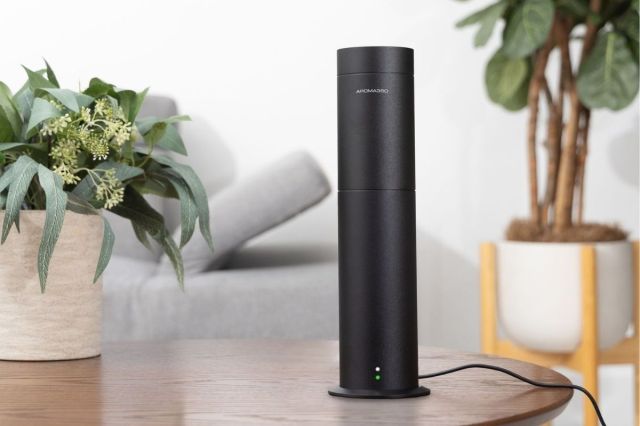It hits you the second you enter the gym — a wall of pungent body odor accumulated from sweaty runners on the treadmills and red-faced weightlifters. Humans stink, and not just sweat from exercise contributes to body odor. Body odors escape mainly through skin gland secretions (sweat) mixing with bacteria, but smells can also come from breath, urine, and even blood. The odors you smell are compounds in the body that fluctuate or change during physical reactions like during exercise or experiences of fright. However, body odor also changes due to age, sex, diet, and overall health. Because of this, a change in body odor, especially a bad change, can sometimes indicate illness. Think of the last time you had the flu or a nasty head cold; you probably didn’t smell like a bed of roses. And scientists believe that some humans can even sniff out certain diseases. Here’s how the nose knows when you’re sick.

What Does Illness Smell Like?
To test whether or not people can really smell sickness, a research team enlisted the help of eight volunteers. A few were injected with lipopolysaccharide, a compound that activates the immune system and inflammatory responses, mimicking illness without actually making anyone sick. The rest of the volunteers received a placebo. A panel of 40 participants then sniffed the armpits of the participants’ t-shirts and were asked to describe the odors. Participants pinpointed the most aversive odors as those of the volunteers who were “sick,” indicating that illness causes foul odor. “This was the first experimental study to show that when you’re sick, you smell differently,” says Mats Olsson, an experimental psychologist who spearheaded the investigation.
After the success of his 2014 study, Olsson continued his research and found something somewhat surprising: People exposed to foul odors (such as rotten foods) experienced increased immune activity as part of their body’s response to the smell. In other words, we are disgusted by smells to keep us safe. He explained, “Emotional disgust is there to keep us healthy.”
Short-term illnesses make us smell, and so can chronic diseases, severe medical conditions, and age-related health changes. Liver or kidney disease can make you smell like bleach due to toxin buildup in your body, and diabetes-related ketoacidosis (and high ketone levels) can give your body a fruity aroma. Other medical conditions that have been reported to make body odor smell different include gout, overactive thyroid, many infectious diseases, and even menopause. Generally speaking, all of these bodily changes can make people smell different.

How “Super Smellers” Are Changing Medical Diagnoses
The average person’s nose can’t sniff out every illness, but some outliers give scientists hope for early disease detection in the future. One such case is Joy Milne, a woman with hereditary hyperosmia, a rare superhero-like ability to detect and discern certain smells. She has the uncanny ability to smell Parkinson’s and other diseases. Milne had first-hand experience with this ability after her husband’s Parkinson’s diagnosis. She realized that the slightly musky body odor she had noticed on him for years was an early indicator of the disease. “I noticed this strange smell, but I didn’t think about it because he progressed into Parkinson’s, and the overwhelming smell was the Parkinson’s smell,” says Milne.
Milne began working with Parkinson’s researchers. During one experiment, Milne correctly identified six Parkinson’s patients out of the 12 participants. She also marked a seventh as having the disease, although they reported they didn’t. Eight months later, the person she “incorrectly” tagged was diagnosed with the disease.
Medical researchers want to harness the skills of super sniffers like Milne to train their sense of smell so they can diagnose patients in the future. By identifying certain chemicals that cause the “sick” smell, we might be able to diagnose diseases earlier, especially those that are frequently missed in the early stages.

I Smell Different! Am I Sick?
Don’t let this cause you unnecessary worry. Just because you smell different doesn’t mean you have an underlying disease. According to the Cleveland Clinic, medications, supplements, or foods (especially sulfur-rich foods such as garlic, cabbage, or red meat) can also cause noticeable changes in body odor. Talk to your doctor if the change or increase in smell is accompanied by other worrisome or uncomfortable symptoms.
Featured Image Credit: spukkato/ iStock
More From Our Network
Better Report is part of Inbox Studio, an email-first media company. *Indicates a third-party property.













